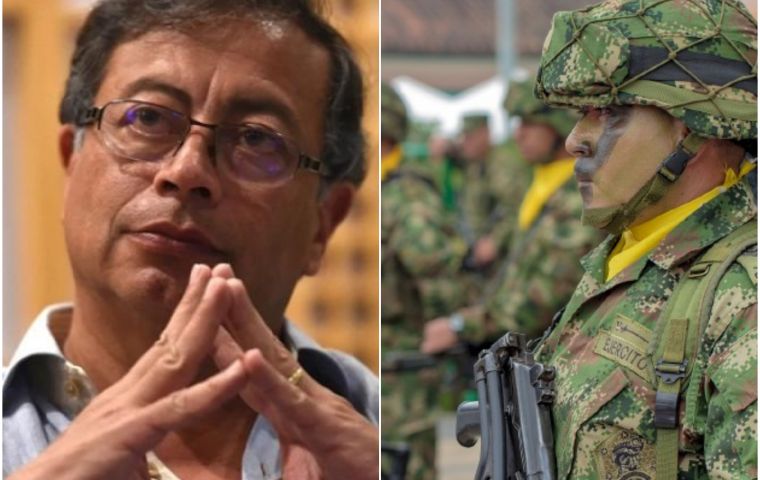MercoPress. South Atlantic News Agency
Petro advised to end compulsory military service in Colombia
 The report also suggested reviewing the military budget for the downsizing of the Armed Forces
The report also suggested reviewing the military budget for the downsizing of the Armed Forces Colombia's Truth Commission has requested President-elect Gustavo Petro to bring compulsory military service to an end once he takes office Aug. 7, together with a broad transformation of the Armed Forces, with a focus on the respect for human rights and international law.
These recommendations are part of a sizeable report submitted to the future head of state to address the country's long-lasting conflicts with guerrilla groups. The report has been overseen by a group of 11 commission members and is based on the 2016 peace agreement between the government and the leftist Revolutionary Armed Forces of Colombia (FARC).
Truth Commission Chairman, Father Francisco de Roux, explained his team had been entrusted not only with investigating alleged human rights violations perpetrated by either side between 1958 and 2016, but also to document how the conflict had affected the country's social, economic, political, cultural, and environmental rights and then to issue recommendations accordingly.
The most outstanding item within the report was the projected separation of the national police from the Ministry of Defense. Other proposals suggested transferring human rights violations and crimes committed by the police from military to civilian courts, in addition to striking the compulsory military service, reviewing the military budget towards its downsizing, and agreements between military forces and private companies such as those in place in rural areas where soldiers are hired to protect oil companies and other private entities.
The commission was also asked to analyze the factors that prolonged the conflict, including the rise of paramilitary groups and the rapid rise of what would become an all-powerful cocaine industry.
The clergyman also explained the document had taken 4 years to develop and involved over 14,000 individual and group interviews, many of which were conducted in 28 Casas de la Verdad (Houses of Truth) set up throughout the country. He also thanked the many victims who had raised their voices, “overcoming fear,” to tell their stories.
Around 260,000 people were killed, most of them civilians, over the years. And more than five million people were forcibly displaced from their homes as a result of the violence.
The report was launched during a ceremony where the highest authority attending it was Vice President-elect Francia Marquez.




Top Comments
Disclaimer & comment rulesCommenting for this story is now closed.
If you have a Facebook account, become a fan and comment on our Facebook Page!